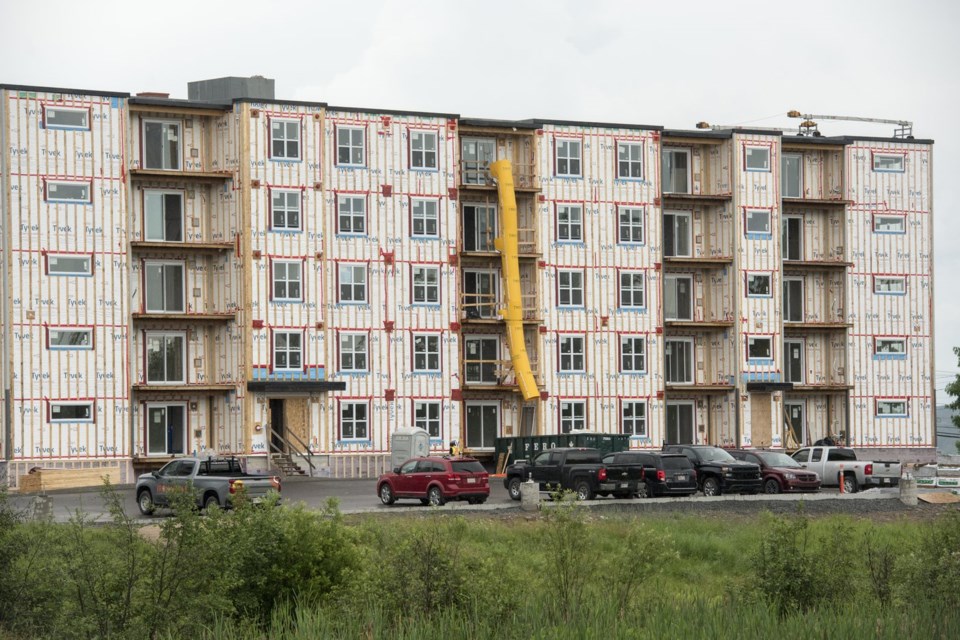FREDERICTON — With New Brunswick's provincial election approaching, a housing advocacy group is calling on the next government to strengthen tenants' rights, particularly through caps on rent increases.
In a report published Thursday, the New Brunswick Coalition for Tenants Rights says renters across the province — disproportionately tenants with disabilities, single parents, and racialized people — fear losing their homes as the cost of shelter rises.
The group surveyed 346 people around the province, three-quarters of whom said they worried about rent increases and one-third said they lived in unsafe conditions.
Tobin LeBlanc Haley, a sociology professor at the University of New Brunswick and report lead author, said the survey results reflect the “absolute unwillingness” of the province to address rental affordability. The group delivered a copy of the report to each of the province’s main political parties.
“I think it’s a handy tool for decision-makers,” LeBlanc Haley said in an interview. “New Brunswick is one of the few provinces in the country without a comprehensive rent regulation regime, so that would be the very first place to start.”
The Liberal and Green parties have promised to implement caps on rent increases. The Liberals want a 2.5 per cent cap; the Green's cap would be three per cent. The Progressive Conservatives have so far not promised to limit rent prices.
LeBlanc Haley said she’s encouraged by the pledges of the Liberals and Greens but wants to know more about the parties' plans.
“The devil is in the details. Rent regulation is much more comprehensive than just stating what the rent cap will be. There’s all these other pieces that have to go into it,” she said.
LeBlanc Haley did not comment on whether any political parties responded to the report.
Richard Saillant, economist and former vice-president of Université de Moncton, said he agrees that one way to help people with the cost of living is through rent caps.
"Economists do not like rent caps, particularly for the long run, and I'm amongst them," he said in a recent interview. "I agree with them, but at the same time, my view is that a rent cap would not have, in the short term, the deleterious effect that a lot of people are thinking at this point."
A rent cap would help people in an overheated market such as the one in New Brunswick until supply catches up with the demand, Saillant said.
The coalition's report said the average price of rent in the province rose by nine per cent between October 2022 and October 2023, three times the rate of inflation over the same period. It pointed out that the wait-list for public housing has increased to 10,000 households, and that shelters are full and homeless encampments continue to grow.
LeBlanc Haley noted that the over-representation of marginalized groups experiencing difficulties in the rental market, such as single parents and racialized people, is demonstrative of how housing is connected to other social issues.
“We’re not the only voice on housing issues in the province. People who are working on gender-based violence are talking about housing, people who are working on immigration are talking about housing, people who are working on 2SLGBTQIA issues are talking about housing,” she said.
Other reasons cited by survey respondents for the difficulty in finding housing include a competitive housing market and power imbalances between landlords and tenants. The report said several participants said they made sacrifices to pay their rent, including eating cheaply, skipping car payments or forgoing cellphone service.
The group's top recommendation is for the party that wins the Oct. 21 election to impose a cap on rent increases. For units that don't have tenants, the group says there should be a cap based on the rent that the last occupant paid.
Other recommendations include developing a landlord-tenant tribunal, offering greater eviction protection for tenants and providing legal aid to low-income tenants to support them during disputes with landlords.
This report by The Canadian Press was first published Oct. 10, 2024.
— By Cassidy McMackon in Halifax.
The Canadian Press



